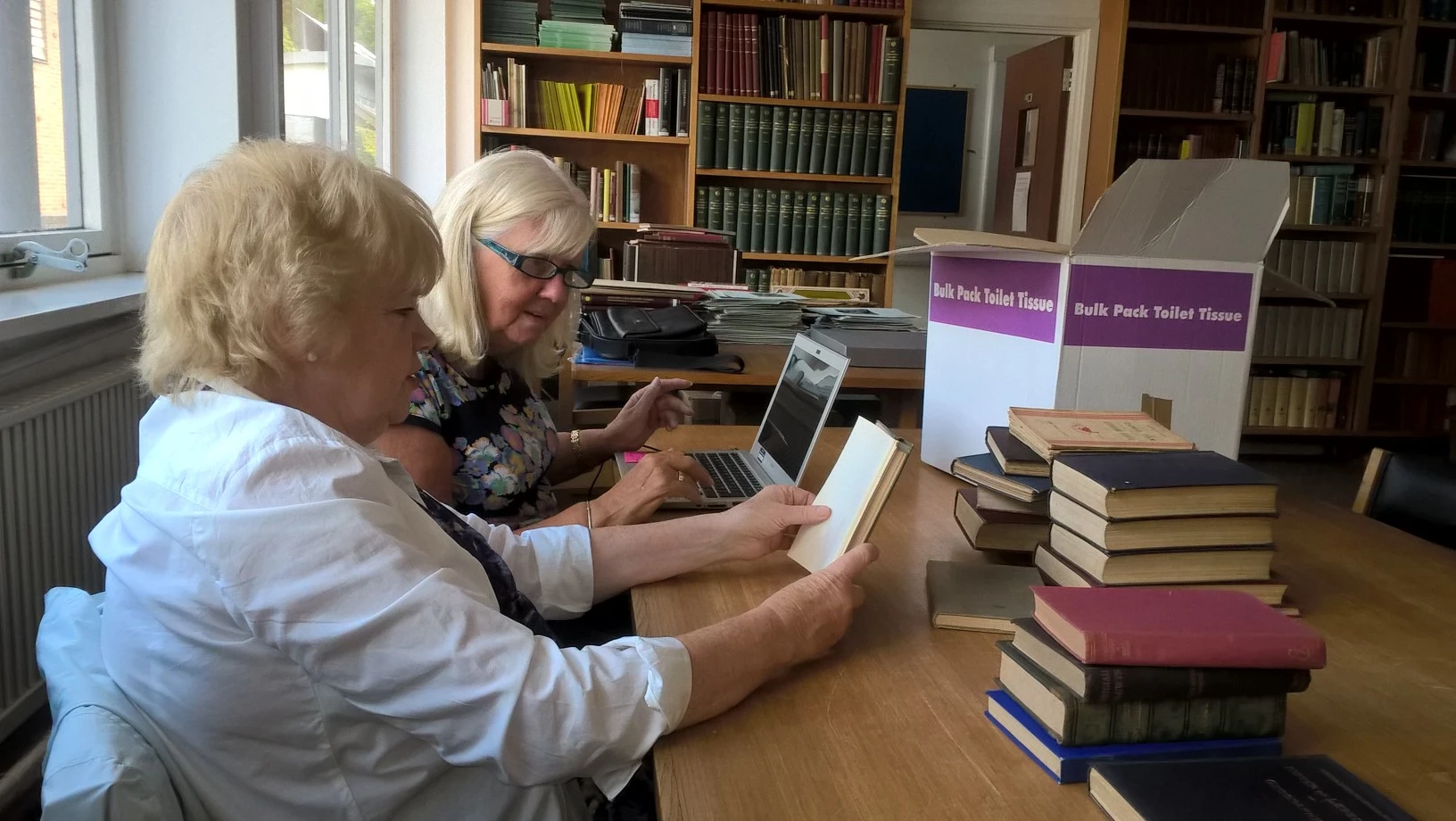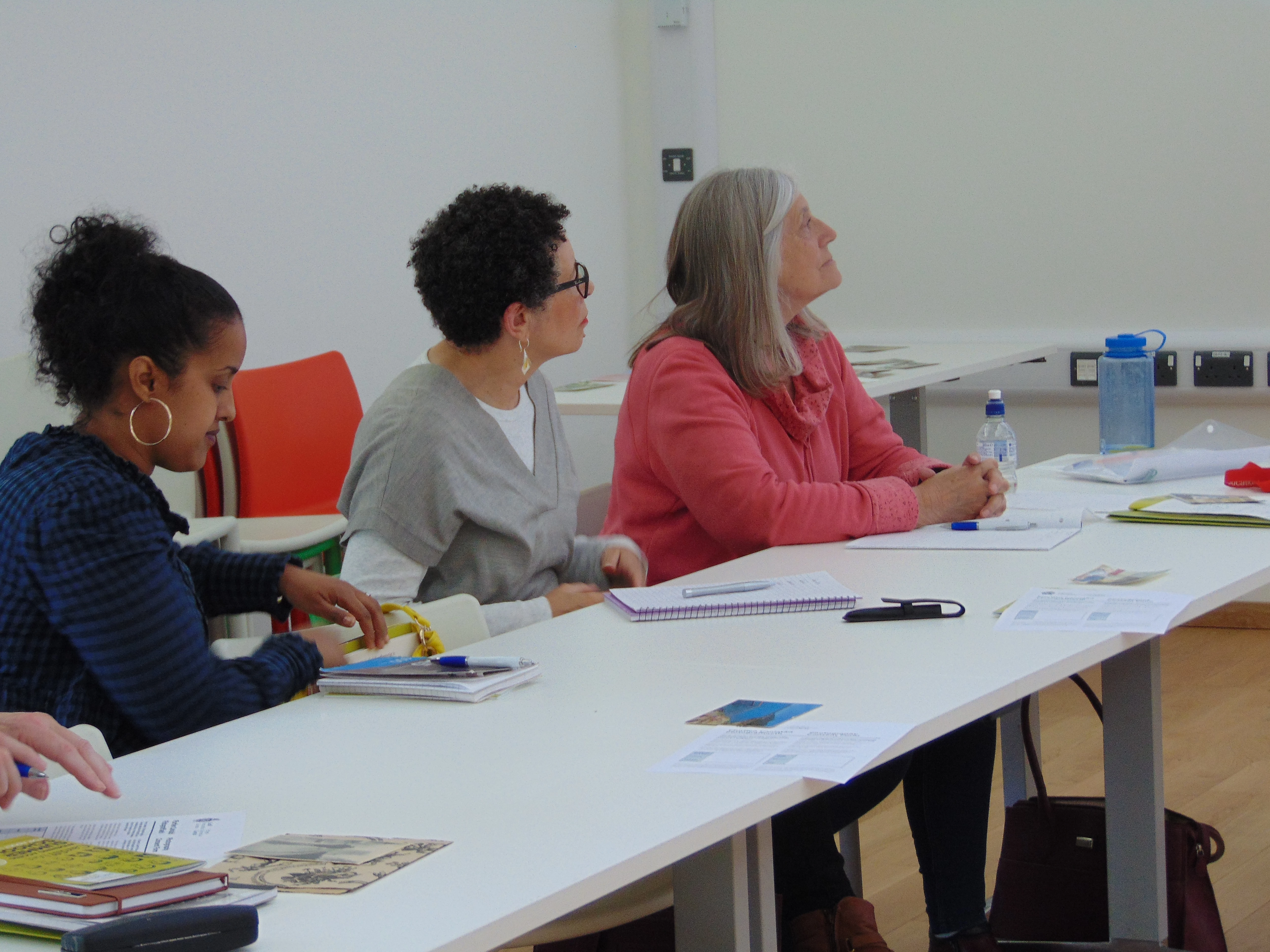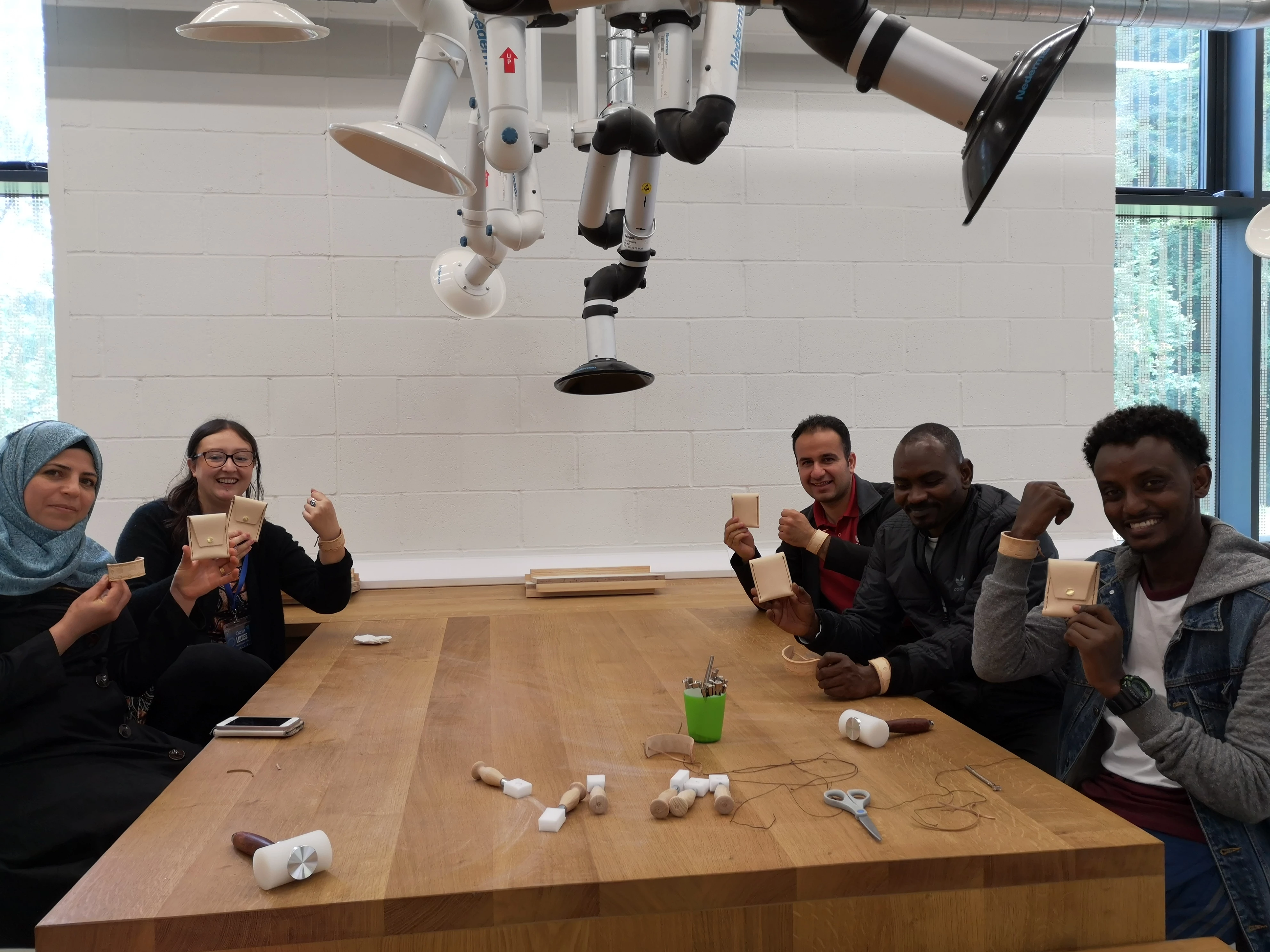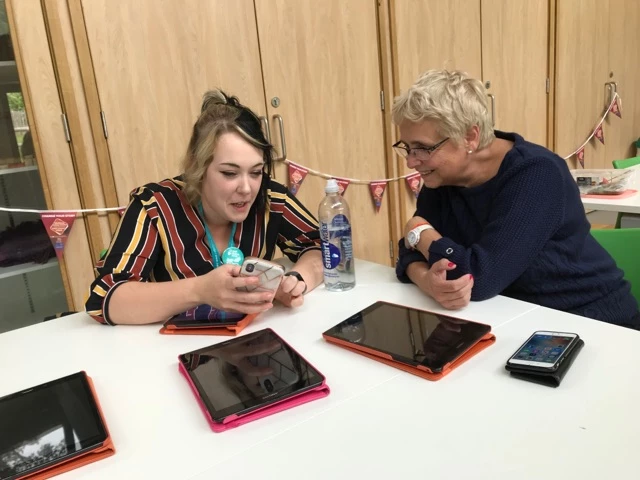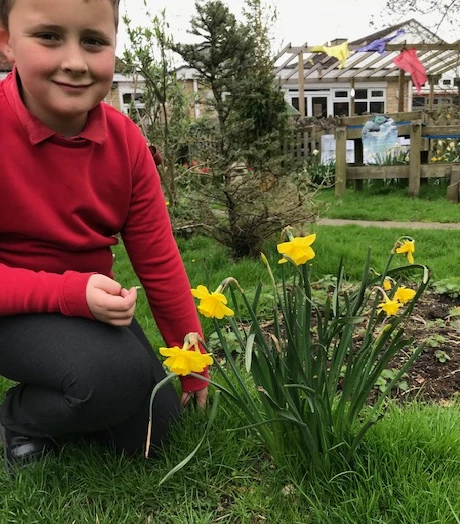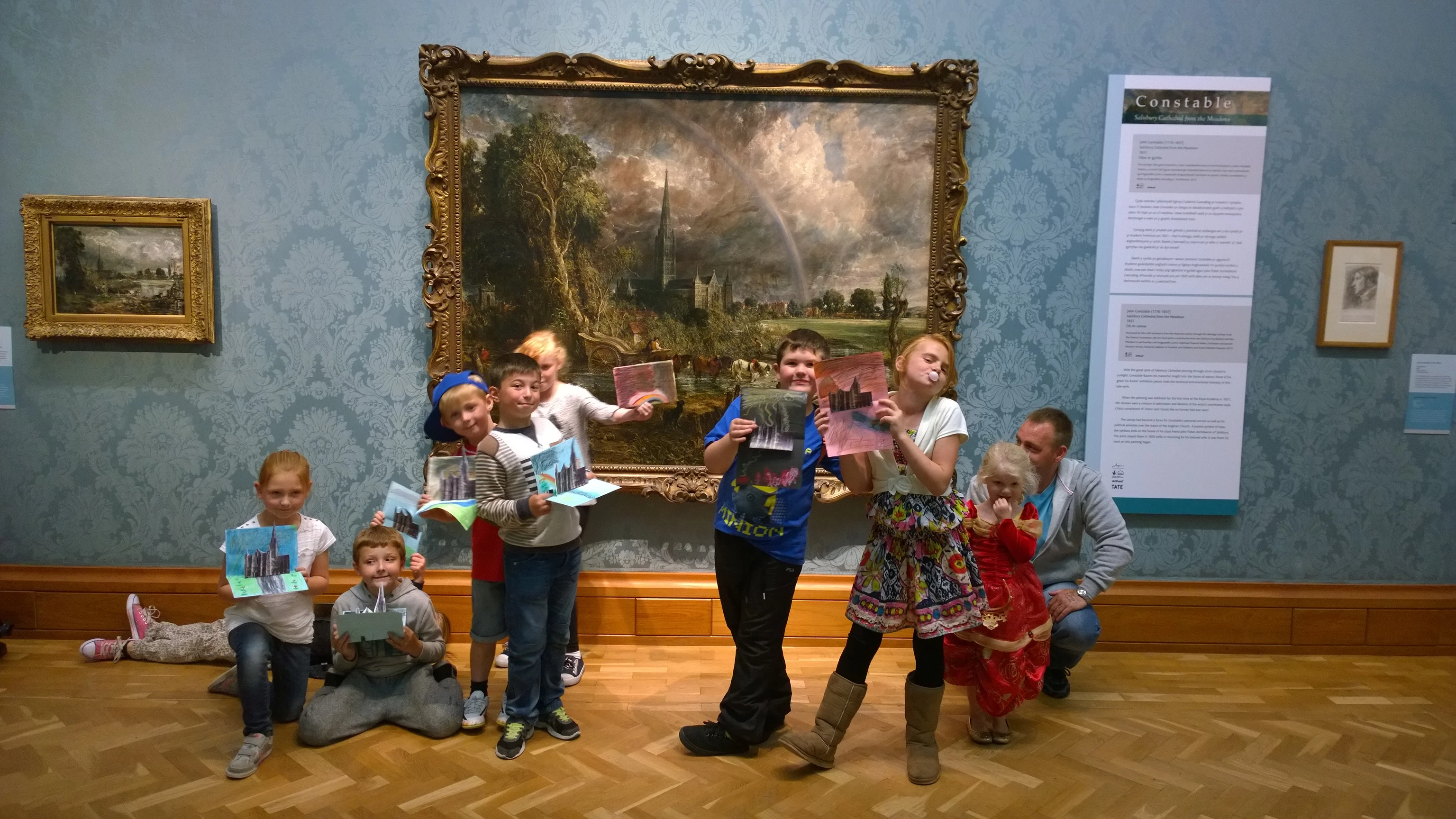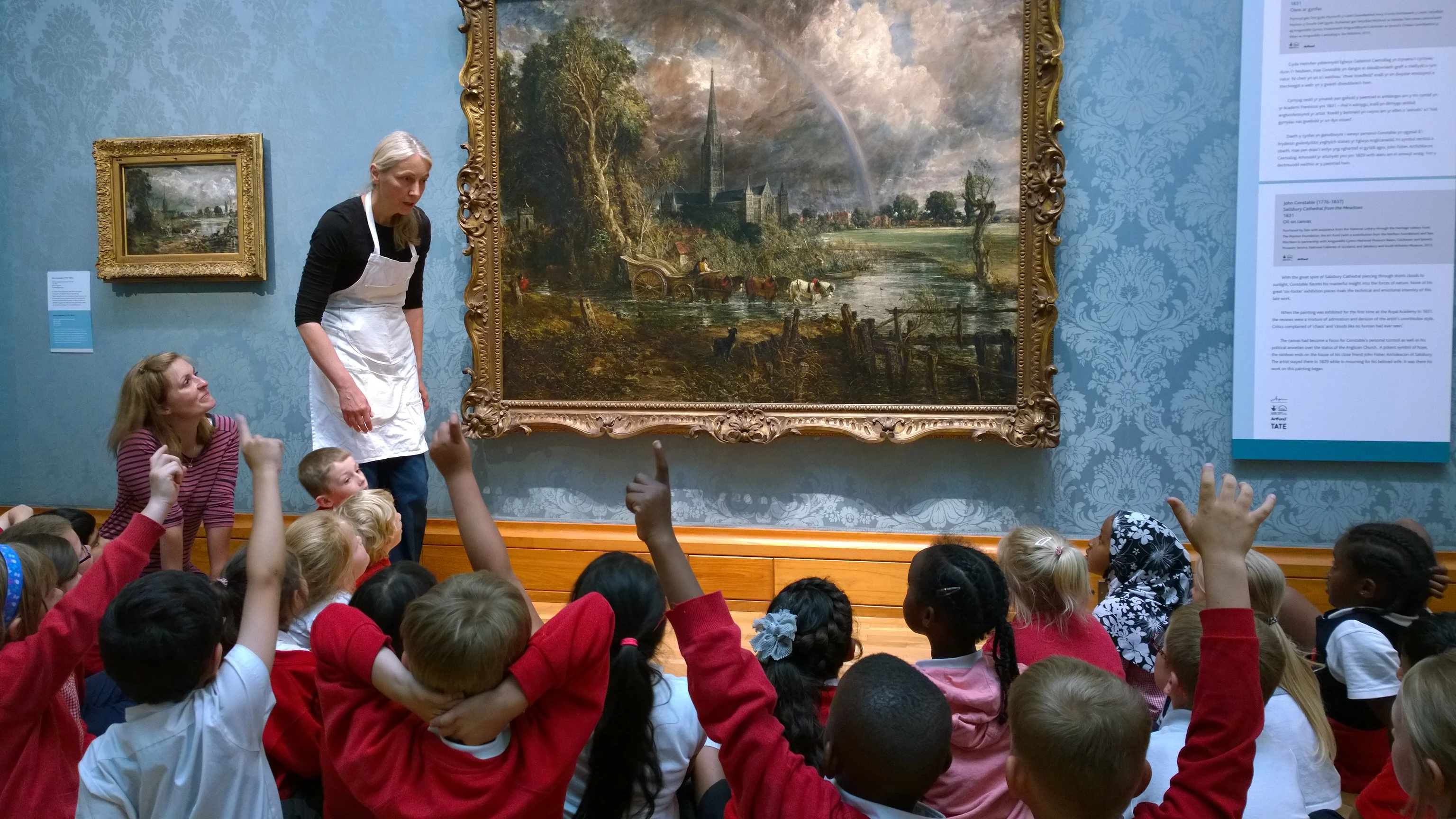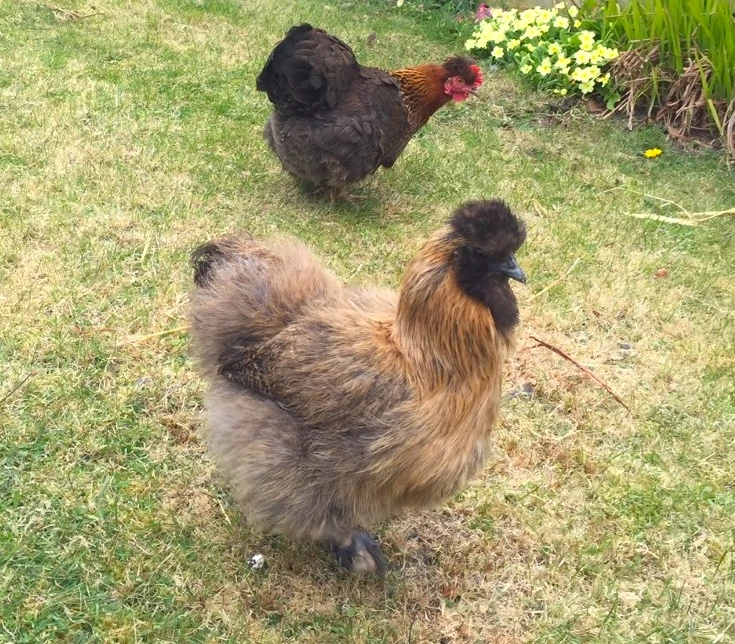Adult Learning in Partnership at St Fagans National Museum of History
, 23 September 2020
Forums were established early in the Creu Hanes Making History project at St. Fagans to help us develop our participatory practice. One of these was the Informal Learning Forum, its focus was adult and community learning and involvement. Partners on this forum were largely involved in these areas of work and came together to support us to develop an adult learning programme at the Museum.
During the project the Forums played different roles, and some were more active than others. The Informal Learning Forum initially worked with us a lot and subsequently throughout the life of the project they helped to shape the scope of Adult Learning at the Museum.
In 2015 when I took on the role working with the forum we began to revisit their role and revitalise their involvement in not only the project but in Adult Learning throughout the Museum, in addition to contributing to the development of the Wellbeing programme.
Since then the forum, now known as the Adult Learning Forum, has gone from strength to strength. They have supported us through the project and with new and ongoing work. Many of the original partners are still with us after the completion of the project in 2018, and new partners have since joined, adding to the diversity and scope of the group.
Here’s a flavour of some of the work we’ve done together over the years and what the partners have to say about it:
“Llandaff 50+ felt extremely privileged to be asked to join the Adult Learners’ Forum and attend its quarterly meetings at St Fagans National History Museum.
Our charity’s aims are to help to ease the problems of loneliness and social isolation amongst older people and to encourage them to organise, and take part in, activities and social events. So, the opportunity to not only work with St Fagans, but also other local charity groups and organisations was an opportunity not to be missed. Contributing to discussions about facilities and opportunities for older people during the refurbishment of the Museum provoked many suggestions from our members about the problems of old age.
It’s so easy to become centred on your own organisation and not see what else is happening in the voluntary and charitable sectors. Although we have the opportunity to give an update on our own activities in the Forum, it is always amazing to find out what else is happening. And we also get the chance to meet new people from all over Cardiff and the Vale, people helping others to improve their lives. Our Treasurer said ‘I didn’t realise there was so much going on, people are doing wonderful things’ after her first meeting.
And we hear of opportunities to volunteer, too. We cherish the memories of cataloguing the books from the library at the Oakdale Workmen’s Institute, and then seeing them back on the shelves, where they belong. The books on engineering, that expanded the mind, children’s classics, that entertained at bedtime, and even a few that were a little risqué (and popular, too, judging by the stamps on the inside cover!). And an enjoyable lunch, after each session, formed a friendship group that still remains.
The Forum has made Llandaff 50+ feel part of the Museum, and our organised visit and tour had a record attendance from members, all re-visiting with new friends, and enjoying the explanations of knowledgeable guides. Many returned with family later in the year to tell of their learning.
We are also able to pass on information, learned at the Forum, to our members. Many attended Adult Learners’ Week events and enjoyed learning new crafts, and remembering old ones. New walks and leaflets are explained during 50+ meetings, and visits encouraged.
We hope that the Forum will continue and enable our small, but very active charity, to work with such an important and much-loved Museum into the future, for mutual benefit.” (Volunteer, Llandaff 50+)
Oakdale Reinterpretation Project
The forum members were integral to the reinterpretation of Oakdale Workman’s Institute in 2015-16. The impact of their contribution saw the building reopen with a more participatory and user-friendly interpretation. This included developing resources for Welsh learners, those living with dementia, and individuals with sensory conditions. You can now also access all the rooms of the institute, some of which were only viewable from the doorway prior to the reinterpretation work.
“In March 2016, as a member of Cardiff U3A’s Local History group, I became part of a re- interpretation project of Oakdale Miners Institute or ‘stute as locals called it. The project, which involved me in research of the building, built during the First World War and which remained a key educational and social centre for Oakdale miners and community through its reading room, meetings, library, concerts, films and dances for many years. This project culminated in the re-opening of the building in its centenary year, celebrated with a party for local people from Oakdale and for me by writing an article in the national U3A quarterly magazine ‘Third Age Matters’.” (Valerie Maidment, member of the Cardiff U3A).
Trialling Adult Learning at St Fagans
Forum members have been central to trialling courses and taster sessions at St Fagans over the past few years. We worked with local community partners Action Ely Caerau (ACE) to recruit volunteers to pilot our first accredited course in sewing skills in 2016. All participants were local to the area and faced barriers to participating in traditional learning opportunities. The course was integrally linked to the Museum, as the participants were making costumes for Museum staff to wear when delivering the Iron Age school session. The garments were based on a traditional pattern, and participants were guided through the techniques required to make them by the experienced tutor and expert historic garment seamstress Sally Pointer. None of the participants had previously sewn and they all left at the end of the 10-week course having not only achieved a qualification, but improved their confidence and interest in further learning.
“We’ve really enjoyed working with the National Museum of Wales at St Fagans, and they’ve become a hugely valued partner in the CAER Hidden Hillfort Project. An example of the impact this partnership has made is found in our collaboratively organised sewing course. Accredited by Agroed Cymru and run in partnership with Adult Learning Wales, the project built on the strengths of both organisations, with ACE recruiting participants from our local communities (and hosting the training at the local community hub) and the National Museum creating a welcoming environment, facilitating the training and arranging participant visits to St Fagans. 13 participants, all of whom faced barriers to learning and none of whom had sewed before, completed the course. Outcomes included increased self-confidence and renewed interest in learning. The replica Iron Age costumes they made are still used by the museum, so they’ve left their mark! We love this kind of project and are enthusiastic participants in the Adult Learning Forum to ensure we can continue working with partners like the National Museum on precisely this kind of project well into the future.” Dave Horton, ACE Development Manager.
Adult Learners Week:
A key member of the Forum, the Learning and Work Institute, run the Adult Learners Week campaign across Wales every year. They have provided support when it comes to developing and delivering our programmes over the years and we have been regular contributors since 2015. We have tested activities and craft workshops, explored the potential of joint delivery and hosting courses, and ensured we’ve been able to provide opportunities to the participants of our partner organisations, as well as offering opportunities on a larger scale e.g. by holding an information fair in 2019. This year, for Adult Learners Week we have been proud to take part in this digital event, creating a programme of opportunities focused on making, crafting and creating.
Here’s a quote from a key partner Hafal, whose participants have trialled and taken part in workshops during previous Adult Learners Weeks and at different times throughout the year.
“I run a gardening project for groups of people at Hafal, the Mental Health Charity based inside St Fagans museum.
Being part of the Adult Learners Forum has given me the fantastic chance to take groups to a variety of workshops held in the museum. The Decorative Copper workshop was a great success as was the Love spoon carving, and we worked for quite a few weeks on helping to thatch the Roundhouse building.
Finding out from other members of the forum about what they have going on in the community has also offered opportunities for us to attend different activities. One of these was the archaeological dig at the Ely Hillfort, where we were shown around the site being worked on and then got to see some of the artefacts that had been uncovered there.
This led to a workshop in the museum with the lead archaeologist, looking in more depth at what was found on the site and what it could tell us of the way people were living at that time, which was extremely interesting to the whole group.
There are many learning opportunities discussed at the forums, and I am able to inform my groups so that they can take up them opportunities if wanted.
Loveday is extremely knowledgeable and approachable, and very good at linking people together for mutual benefit. It has been a privilege to be part of the forum.” (Lesley, Recovery Practitioner, Hafal).
Hosting courses at St Fagans
Since the opening of the new facilities at St Fagans in 2017 we have worked hard with partners to establish opportunities for other organisations to bring their learning opportunities to the Museum. We have worked with Cardiff Met’s Widening Access Department who in 2019 bought a series of courses to the Museum e.g. Creative Writing and Complimentary Therapy. These courses used the Museum and its collection to draw inspiration and influence the content of the courses. This delivery partnership enables learners to experience a unique Welsh perspective on their learning experience.
Here’s what the Widening Access team at Cardiff Met have to say about the partnership:
“It has been our great pleasure to work collaboratively with St Fagans, enabling us to enrich courses by sharing the wonderful resources and expertise available at the Museum. Tutors from the University are able to work with the staff at St Fagans to incorporate Welsh culture into their courses and the exhibits bring this to life for students.
By sharing resources, publicity and expertise the students benefit by a greater offer than without the partnership work. We are also able to reach a wider community and are able to consult via the learning forum so that we have a better understanding of what the community would like to learn.
Finally it is great to be able to hold the courses in such fantastic buildings and have the support of all the staff who are always professional, friendly and most importantly provide a warm welcome.” (Jan Jones, Head of Widening Access, Cardiff Met).
We also work closely with Welsh for Adults, based within the School of Welsh at Cardiff University. We have hosted Sadwrn Siarad, a day of welsh language activities, in the summer for several years, but in 2019 we were able to offer them classroom space to bring Welsh evening courses to St Fagans. This was piloted in January 2019 when the first Entry 1 course started. Following its success two further courses started the following September, whilst the learners engaged on the first course progressed to Entry 2.
Here’s what the Welsh for Adults team at the School of Welsh have to say about the partnership:
“Mae Dysgu Cymraeg Caerdydd yn falch iawn o gael y cyfle i gyd-weithio â Sain Ffagan Amgueddfa Werin Cymru. Ffurfiwyd y bartneriaeth drwy Fforwm Addysg Oedolion sy’n cael ei arwain gan Loveday Williams o’r Amgueddfa ac mae’r cyd-weithio rhyngom wedi mynd o nerth i nerth ers hynny. Yn Ionawr 2019, cynhaliwyd cwrs dysgu Cymraeg lefel Mynediad ar gyfer dechreuwyr yn yr Amgueddfa. Mae’r gwaith wedi dwyn ffrwyth ers hynny gan i ni ddarparu tri chwrs ym mis Medi 2019, cwrs dilyniant a dau gwrs lefel Mynediad i ddechreuwyr. Er i ni orfod oedi’r dysgu wyneb yn wyneb ym mis Mawrth eleni, mae’r holl gyrsiau wedi parhau’n rhithiol ac yn parhau ar-lein am 2020-2021. Felly er nad oes modd i ni gynnal dosbarthiadau yn Sain Ffagan ar hyn o bryd, mae’r Fforwm Addysg Oedolion yn ein galluogi ni i barhau i gyd-weithio a chynllunio at y cyfnod nesaf.” (Mari Rowlands, Dysgu Cymraeg Caerdydd)
“Learn Welsh Cardiff is delighted to have the opportunity to work with St Fagans National Museum of History. The partnership was formed through the Adult Learning Forum led by Loveday Williams from the Museum and the partnership has gone from strength to strength ever since. In January 2019, we held an Entry level Welsh course for beginners at the Museum. The work came to fruition when we provided three courses in September 2019, a progression course and two Entry level courses for beginners. Despite pausing all face-to-face learning back in March, all courses have continued virtually and will remain online for 2020-2021. So although we can't hold classes at St Fagans at the moment, the Adult Education Forum allows us to continue to work together and plan for the next period.” (Mari Rowlands, Learn Welsh Cardiff)
We look forward to continuing to work with all our partners, and establishing new ones in the future as we assess what our “new normal” will look like and how we can continue to operate and grow our adult learning offer.
